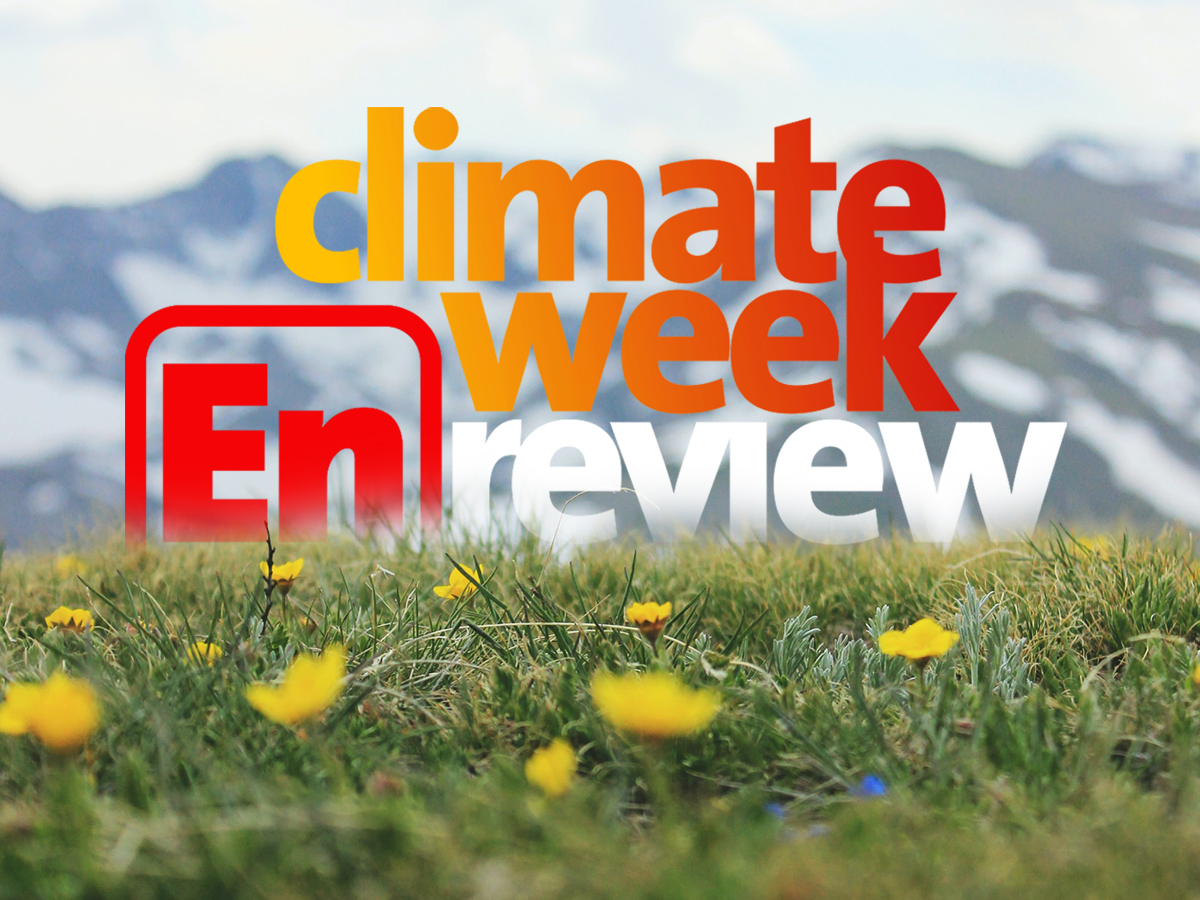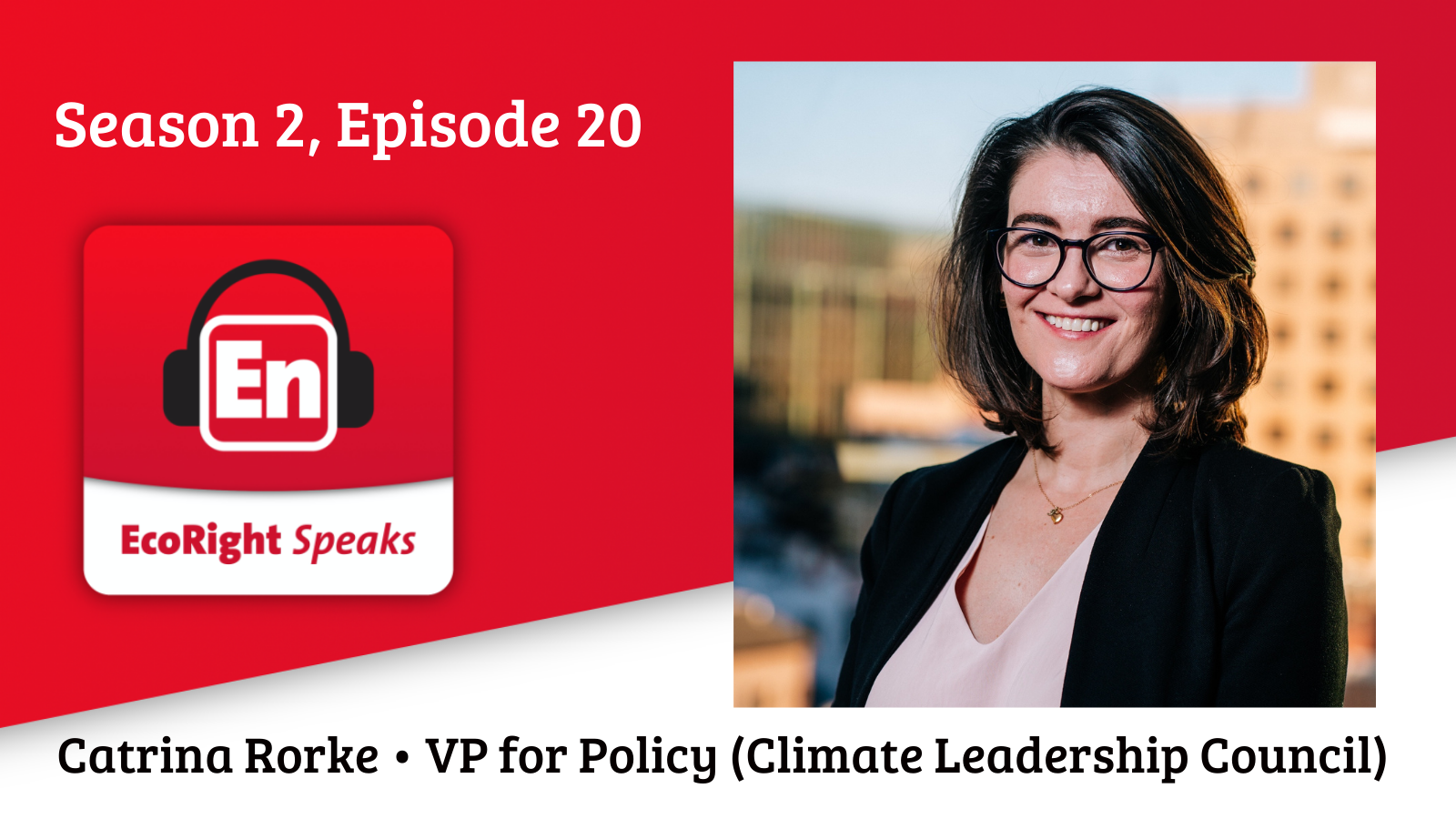
And like that, it’s Father’s Day weekend. If you’re a dad, hope you enjoy your weekend. If you’re not a dad, I still hope you enjoy your weekend.
This week’s must read: Tailoring climate change messaging for conservatives could shift understanding of crisis (ABC News) No surprise to us doing the work, but it’s worth emphasizing, “it’s possible to design [climate change] messaging interventions that are both persuasive and scalable, and that climate change communication is more likely to persuade people when the message and messenger resonate with the audience’s values and identities.”
Read the whole article for a Bob Inglis mention!

🎉 Happy Birthday, EcoRight Speaks 🎉
For this week’s one year anniversary of podcasting and the 20th episode of season two, we have a very special guest. Catrina Rorke is Vice President for Policy at the Climate Leadership Council. In this role, she develops the details of the Baker Shultz Carbon Dividends Plan in consultation with four dozen Founding Members, including corporate leaders, environmental nonprofits, and influential individuals. She also manages the Council’s research program and supports the Council’s advocacy and outreach activities.
Prior to joining the Council, Catrina served as Director of Energy Policy and Senior Fellow at the R Street Institute, a free-market and limited government public policy organization, where she founded the Institute’s energy and environment program. She also previously founded the energy program at the center-right American Action Forum, an economic, domestic, and fiscal policy think tank. And as a legislative assistant to our own Bob Inglis, she helped craft the first Republican-sponsored carbon tax bill. Bob joins me to reminisce about their work on the Raise Wages, Cut Carbon Act as well as discuss an exciting new case study that Catrina recent spearheaded with the Climate Leadership Council. The case study shows the positive impact a carbon border adjustment would have on the U.S. steel industry.
Have a listen!
And that’s a wrap for season two! We’ll be taking a short break and coming back at you soon with season three. I’m lining up the guests now (spoiler alert: I have a farmer, a wine-maker, and a fusion energy expert confirmed) and you will not be disappointed.
A special shout out to those members sending their podcast subject requests! Eager to bring you the programming you want to hear, I am on it!
Ready, set, act: In a recent interview on Inside Sources, Utah’s most outspoken conservative climate advocate, Rep. John Curtis, pointed to the meeting he hosted in his home state last week as evidence there is interest in the GOP caucus in learning and acting on climate change.
“We said if we get half a dozen here it will be a success. Twenty-four Republican lawmakers came to Utah to talk about climate,” Curtis said. “I think the a-ha moment was they’re not alone. Sometimes as Republicans, you feel a little bit alone…And the second a-ha moment . . . is when they realize they do not need to abandon conservative principles to be strong on the environment.”
Curtis is soon to announce the formation of his conservative climate caucus, a venue for members to learn about the science and different policy options. “Watch for us to take the offensive on the climate dialogue and stop being defensive,” he explained. “That’s, I think, the most important thing for conservatives and Republicans now is to stop running from this and turn around and say wait a minute, we have ideas, they’re good ideas.”
Hot off the presses: From our friends at the George Mason University Center on Climate Change Communication comes the latest on core beliefs and attitudes about climate change.
From the report, the good news:
Americans who think global warming is happening outnumber those who think it is not by a ratio of more than 4 to 1 (70% versus 15%). Those who are “very” or “extremely” sure global warming is happening outnumber those who are “very” or “extremely” sure it is not by more than 5 to 1 (50% versus 9%).
However, we also find that relatively few Americans hear about global warming in the media at least once a week (27%) or once a month (21%). Even fewer say they hear people they know talking about global warming at least once a week (6%) or once a month (13%). This “climate silence” continues to limit public and political discourse about climate change and climate solutions.
We hope you’ll check out their full report for more.
That’s it for Team EcoRight. Wishing you well. See you next week.
